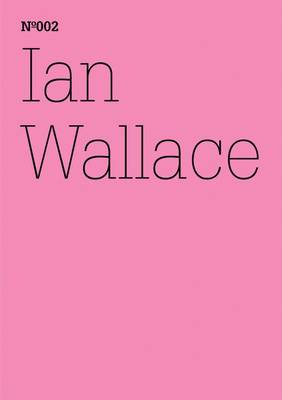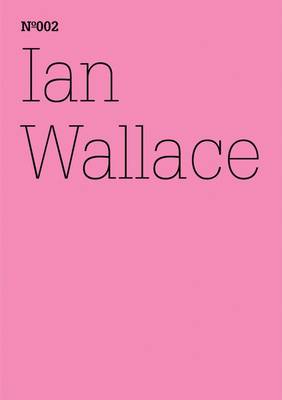
- Afhalen na 1 uur in een winkel met voorraad
- Gratis thuislevering in België vanaf € 30
- Ruim aanbod met 7 miljoen producten
- Afhalen na 1 uur in een winkel met voorraad
- Gratis thuislevering in België vanaf € 30
- Ruim aanbod met 7 miljoen producten
Zoeken
Omschrijving
In 1955, the first documenta took place in Kassel. Originally planned as a one-time exhibition, it takes place every five years and has become a primary periodic moment of exhibition and reflection on contemporary art. In this 1987 lecture, held at the University of British Columbia, Vancouver, Ian Wallace sheds light on the first documenta. After World War II, the exhibition followed the aim to represent and rehabilitate those artists who had been vilified as degenerate by the National Socialist regime. The first documenta is a mirror and protagonist of the postwar cultural and political climate. Under the guidance of Arnold Bode, and with the help of Werner Haftmann, it has notably contributed to what has been called the triumphal march of abstraction which helped West-Germany to reintegrate itself into European modernity.
Ian Wallace (born 1943) is a Canadian artist based in Vancouver. He has taught at the University of British Columbia as well as at the Emily Carr University of Art and Design.
Ian Wallace (born 1943) is a Canadian artist based in Vancouver. He has taught at the University of British Columbia as well as at the Emily Carr University of Art and Design.
Specificaties
Betrokkenen
- Auteur(s):
- Uitgeverij:
Inhoud
- Aantal bladzijden:
- 40
- Taal:
- Engels
- Reeks:
- Reeksnummer:
- nr. 2
- Geïllustreerd:
- Ja
Eigenschappen
- Productcode (EAN):
- 9783775728515
- Verschijningsdatum:
- 11/04/2011
- Uitvoering:
- Hardcover
- Afmetingen:
- 252 mm x 175 mm
- Gewicht:
- 94 g

Alleen bij Standaard Boekhandel
+ 20 punten op je klantenkaart van Standaard Boekhandel
Beoordelingen
We publiceren alleen reviews die voldoen aan de voorwaarden voor reviews. Bekijk onze voorwaarden voor reviews.








